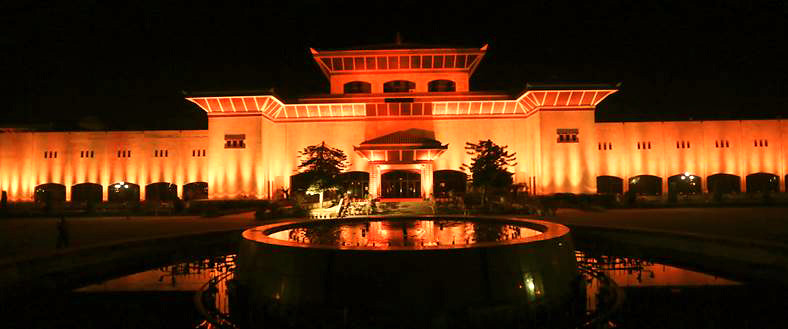Nepal Parties Slam Parliament Dissolution
By Sunidhi - Sep 14, 2025
Eight major political parties in Nepal condemn President Ramchandra Poudel's decision to dissolve Parliament, calling it unconstitutional. Youth-led protests over corruption and unemployment have erupted, leading to heightened political turmoil. Critics argue that the dissolution undermines democratic principles, with the president appointing an interim prime minister and setting elections for 2026. The move has sparked public outrage and clashes, raising concerns about the country's democratic future.

Nepal Parliament via Flickr
Eight major political parties in Nepal have strongly criticized President Ramchandra Poudel’s decision to dissolve the House of Representatives, calling it unconstitutional and undemocratic. The move came amid widespread youth-led protests over corruption, unemployment, and restrictions on social media, sparking fresh political turmoil in the Himalayan nation. Parties including the ,[object Object],, ,[object Object],, and CPN (Maoist Centre) issued a joint statement urging the president to immediately reinstate parliament, arguing that the dissolution undermines Nepal’s democratic framework.
The crisis escalated after President Poudel appointed former Chief Justice Sushila Karki as interim prime minister and announced fresh elections for March 2026. According to the opposition, the dissolution of a functioning parliament goes against Article 76(7) of the constitution and contradicts ,[object Object], precedents that protect the legislature’s mandate. Political observers say the decision has fueled further instability in a country that has witnessed frequent government changes since the abolition of the monarchy in 2008.
Public anger has intensified across Nepal, with thousands of protesters taking to the streets in recent weeks. Reports indicate that more than 50 people have been killed and many others injured during clashes between demonstrators and security forces. Protesters, largely led by young citizens, have condemned the government’s handling of corruption cases and accused leaders of failing to prioritize the public’s concerns. The dissolution, critics argue, has only deepened mistrust between citizens and the ruling establishment.
International experts and regional observers are closely monitoring the unfolding crisis, warning that the dissolution could weaken democratic norms in Nepal. The unified demand from major parties adds pressure on the president to reconsider his decision, while citizens continue to push for greater accountability. As the political deadlock deepens, Nepal faces a critical test of its democratic institutions and their ability to address growing discontent.


